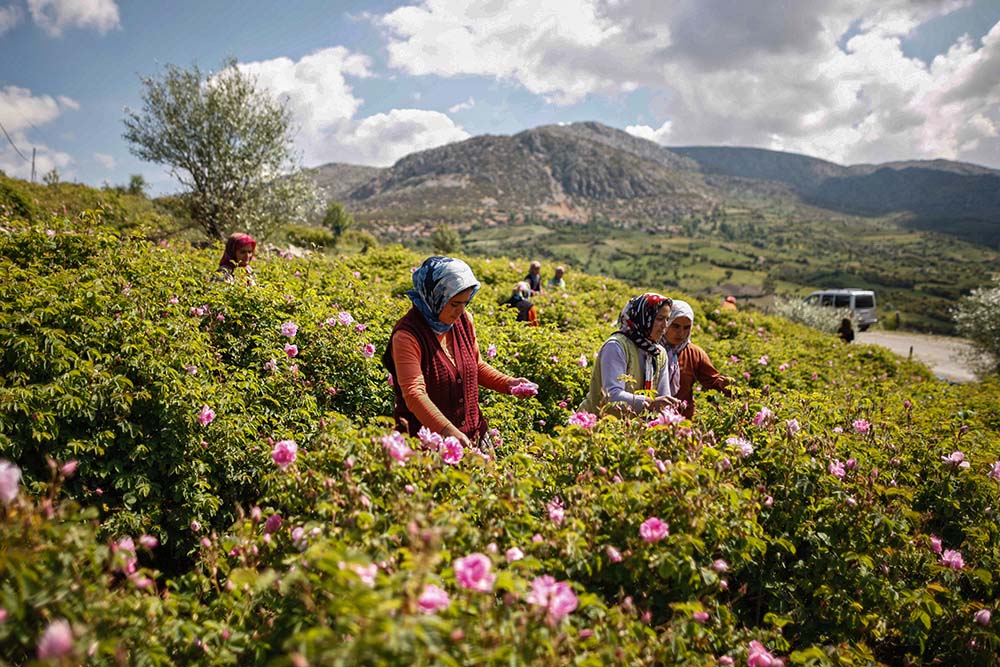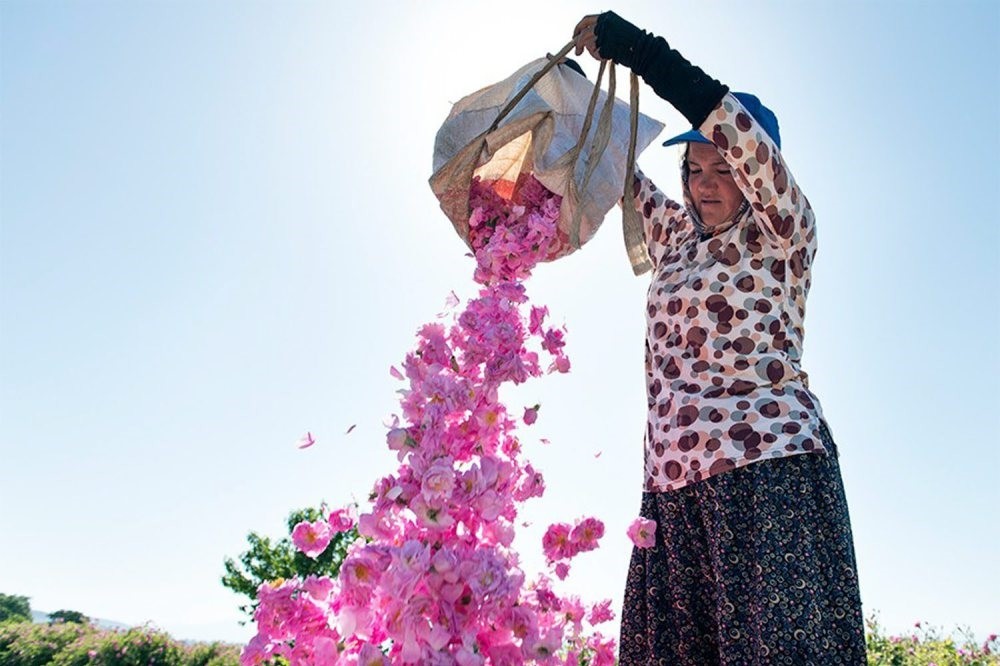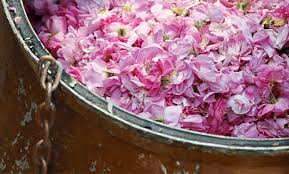History of Isparta Roses
The Isparta rose is not originally from this land but rather originates from Kızanlık, Bulgaria. In the 1840s, Müftüzade İsmail Efendi, born in the Yalvaç district of Isparta, was assigned to this city for duty. He could never forget his hometown of Isparta, and he found the city he was sent to very reminiscent of Isparta. Roses grew abundantly throughout the city, not just for their beauty and fragrance but also for the highly therapeutic properties of their oil. During his time there, Müftüzade İsmail Efendi planted roses in the garden of his house, learned how to care for them, and began producing rose oil. He longed for this beautiful plant to also grow in his homeland. However, at that time, international plant transportation was prohibited. But İsmail Efendi was determined to bring this beautiful rose back to his birthplace. He concealed rose cuttings within his staff. Being a religious scholar, he easily crossed the border without being searched and arrived in Isparta, where he planted the roses in his garden. He began cultivating them and in 1892, he produced the first batch of rose oil.

Farmers picking up Roses at the Big Rose Garden.
How to Cultivate the Isparta Rose and Its Characteristics
With its stunning pink hue, this rose possesses an exceptional beauty and is the most therapeutic and nourishing among all roses. It is primarily cultivated for its aromatic rose oil. The most renowned product of the Isparta rose is its delightful fragrance. Although it has become synonymous with Isparta, this rose variety is grown in many regions surrounding Isparta. The cultivated roses are divided into three categories based on their leaf structure: “Yalın kanat” (single petal), “katmerli gül” (double-petal), and “yarım katmerli gül” (half-double petal).
The Isparta rose prefers a temperate climate, favoring temperatures not exceeding 40 degrees Celsius and not falling significantly below 15 degrees Celsius. It is not overly selective about soil conditions but is more influenced by climate factors. The intensity of its fragrance is determined, especially, by its exposure to sunlight. Roses that receive abundant sunlight produce a stronger fragrance.
Health Benefits
The Isparta rose, also known as the “healing rose,” offers numerous health benefits generously. This beautifully scented rose has a soothing effect, particularly on tonsillitis and throat inflammation. Gargling with rose water is also effective for mouth ulcers. It serves as an antibiotic for skin problems in babies. When bathed in rose water, it is known to be beneficial for conjunctivitis and allergic conditions. Tea made from the delicate rose petals has a calming effect. Its aromatic oil is particularly effective for treating acne and pimples.

Rose harvest in Isparta
How Rose Oil Is Extracted
The rose oil that İsmail Efendi first obtained in 1892 eventually gained popularity among the local population. During that time, rose oil was distilled using a simple device called an “imbik.” In 1935, when Atatürk visited Isparta, he was impressed by the rose oil and ordered the construction of a modern factory in Isparta, leading to the establishment of the first rose oil factory. Today, rose oil obtained from the rose oil factories found in various parts of Isparta is exported to different regions of the world, with significant demand in the cosmetics industry.
Although he passed away in 1551 without ever seeing the Isparta rose, the following lines by Ümmü Sinan the Scholar could also be attributed to the Isparta rose:
“They buy roses, they sell roses
They weigh roses on scales
They compare roses with roses
The market is filled with roses.”

